The Svislach River contorts as it flows through Minsk, the Belarussian capital: It acrobatically twists west, then dodges east, before springing north – as if uncertain where it wishes to head next, before finally deciding to flow further south. A like comparison could be made of Belarussian dictator Alexander Lukashenko who, after 18 years in power, is used to spinning his rhetoric and actions to both pacify his population on the one hand, while not upsetting the Kremlin on the other.
In the past week, Minsk has become the focal point of the West’s worried attention as the nation with a population of 9 million appears poised to open a northern front to support Russia’s invasion of Ukraine. An alternative scenario is that Minsk is preparing to send its men north to conquer NATO-ally Lithuania. Whether Lukashenko plans to send his soldiers north, south, or nowhere at all, depends on whose analysis you read.
Valentyn Nalyvaichenko is a current Ukrainian MP who formerly served as Ukraine’s Ambassador to Belarus before becoming the Director of the Security Service of Ukraine (SBU). In his view, Lukashenko is walking a fine line between maintaining power in his own country, while seeking to appease Russian President Vladimir Putin, to whom he is reliant for energy and cash to fund the languishing Belarussian economy.
“Lukashenko knows that he cannot afford to lose Moscow’s patronage, but at the same time, he knows that the day he puts his soldiers under a Russian General – who is under the chain-of-command of Putin – his [the Lukashenko] presidency is over.”
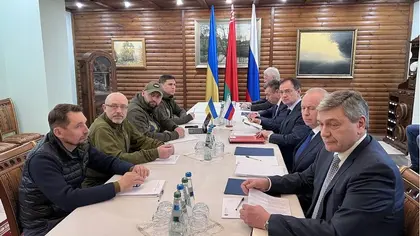
Did Peace Between Russia and Ukraine Slip Through Their Fingers in April 2022?
Nalyvaichenko posits that this may be exactly what the Russian President has in mind as he continues his quest to construct a pan-Slavic, Moscow-centered, country that would include both Belarus and Ukraine territories.
Polling in Belarus, though notoriously dubious, was conducted by the reputable Chatham House in early March 2022. The poll found that a solid 67% of Belarussian respondents opposed the use of their country as a launching pad from which Russian missiles are fired into Ukraine; and 52% opposed giving Russia the use of Belarussian territory from which to execute military operations inside of Ukraine.
The Belarussian population’s views on foreign invasions could not be any more stark in terms of what the Kremlin would hope: While 28% of Belarussians feel that Belarus should support Russia’s war in Ukraine, only 3% support Belarus directly participating in military actions in Ukraine. However, this has not eased vexations that Lukashenko is being pressured, by Putin, to send Belarussian soldiers abroad.
Pawel Weshtort, a Belarussian opposition leader, agrees that the polling results are probably a realistic reflection of Belarussian popular sentiment and says that similar levels of antipathy would likely be found in the Belarussian Army.
“The military is categorically against the [Russian-led] aggression in Ukraine,” says Weshtort, adding “they are demanding the withdrawal of Russian troops from Belarus.”
Weshtort notes that despite the current level of repression within Belarus, some army officers, even at the level of colonel, have gone so far as to post their opposition to any Belarussian participation in foreign military conquests on their personal Facebook pages, citing that it would be a violation of the Belarussian Constitution.
Ivana Stradner, an advisor to the Foundation for Defense of Democracies working on Russian hybrid warfare, feels that “while military exercises near the Ukrainian border may look like the preparation for a potential war, a new offensive from Belarus seems improbable at this point.”
Stradner observes that the “latest polls show that the majority of Belarusians would not support the intervention and it would have negative consequences for Lukashenko”. Added to that, “the last thing Lukashenko needs right now is economic pressure from the West or his people taking to the streets.” However, the advisor notes that “one thing is what Lukashenko wants, but Putin’s demands and wishes are quite another, so we need to observe this space closely.”
False Flag Tyranny
Though a challenge to quickly turn a nation opposed to the war into warmongers, Ukrainian news reported earlier this month that Russian officers were in the Belarussian city of Mazyr to instigate a false flag operation; specifically to detonate an explosion in the city which could then be blamed on Ukraine, with the hope that it would ramp-up Belarussian public support in favor of direct participation in the war against Ukraine.
“Such a tactic is not mere speculative fantasy, but precisely the roadmap for how Putin came to power,” says former Financial Times Moscow Bureau Chief David Satter in his book “The Less You Know, the Better You Sleep.”
According to Satter, following the 1999 Moscow apartment bombings, Putin’s promises to “destroy” the Chechen perpetrators dramatically rallied public support for the Second Chechen War. Cementing Putin’s goal of obtaining the Presidency was in fact a massive false-flag operation organized by Russians, not the Chechens.
Rather than nefarious Chechens, it was the Russian Federal Security Service (known as the FSB) under Putin, that orchestrated the apartment bombings in Moscow’s suburbs. Satter provides extensive evidence to document his claims and makes a strong case that for Putin, spilling his own citizens’ blood for political gain and to increase support for a war is all part of the dictator’s playbook.
If Putin was willing to kill his own people for power 20 years ago, why would he shy away from doing a redux in Belarus – this time simply replacing fake Chechen terrorists for Ukrainian terrorists?
Despite his strong outward support for Putin’s Ukraine gambit, Lukashenko has yet to command his soldiers to participate directly in the Ukrainian invasion. Similarly, Lukashenko’s rhetoric about Lithuania has failed to materialize into action.
The Lithuania Situation
Earlier this month, Lukashenko referred to Lithuania’s decision to enforce EU-sanctions barring the transit of some goods to Kaliningrad from passing through Lithuania, as “an act of war” – echoing countless Russian MPs who pronounced that it was time to take “aggressive action” against Lithuania. Yet despite global headlines announcing that the Belarussian President judged Vilnius’ actions to be a casus belli, not everyone was persuaded that Lukashenko’s threats will amount to anything more than “empty words.”
In an exclusive interview with the Kyiv Post, the Lithuanian Deputy Foreign Minister, Mantas Adomenas, relayed that Lithuania has not noticed any signs that Belarus is readying for war and that the shrill threats are “a typical Russian propaganda move.”
“Lithuanians are used to Russian propaganda,” Adomenas confidently stated. “We are members of NATO and the EU – these Russian threats have not cost many people in Lithuania any sleep and I can assure you that I sleep just fine,” the nonchalant senior diplomat concluded.
Darius Jurgelevičius is a former Deputy Foreign Minister of Lithuania who negotiated the current bilateral agreement for goods from Russia to transit across his nation, destined for Russia’s exclave of Kaliningrad. In his opinion, “Russia and Belarus make reckless threats thinking that Lithuania will be frightened into renegotiating the transit agreement. They hope that we will agree to ‘open a corridor’ – a proposal that we outright rejected in the ‘90s.”
The former Deputy Minister added: “Lithuania is absolutely in ‘full compliance’ with the agreement. Russia knows it, Belarus knows it. These threats are just the traditional song they sing when attempting to pressure countries.” With a smile and a calm voice, he reflected that “in all these years, they still have not learned that Lithuanians do not back down when challenged.”
Warnings from the Minsk-based dictator do not necessarily indicate that follow-through actions will be taken. Rather, it is more likely that Lukashenko, per his norm, is mimicking the pronouncements that his Moscow benefactor expects from him, posits Jurgelevičius.
Nalyvaichenko agrees that bellicose statements from Minsk do not always foreshadow follow-up actions being taken. However, he caveats that this time the situation may be different.
Covering Russian Losses
Putin “cannot hide the fact that the loss of Russian soldiers in Ukraine has been staggering. Now Russia lacks expendable troops with technical skills,” says Nalyvaichenko. This presents a problem as Putin has, thus far, done well in camouflaging his Ukraine combat casualties by prioritizing the deployment of his soldiers from Siberia, particularly of ethnic minority extraction, which keeps urban dwellers of Moscow and St Petersburg from noticing the losses. Now running short on ‘disposable’ soldiers, Moscow may seek to fill the shortage with Belarussians, points out Nalyvaichenko.
However, as a prerequisite for Belarussians to march across any border, if they do eventually cross into a foreign land, says Nalyaichenko, Putin and Lukashenko will undoubtedly make a one-on-one deal as to how the joint effort would operate.
Despite the whirling threats as Lukashenko’s plans remain yet unclear, the former International Secretary of Lithuania’s ruling conservative party, Gintarė Narkevičiūtė-Jurgelionė says that she does not worry about Lukashenko’s “famously empty threats.” She confidently states that “Lukashenko knows that he is weak, and that his days are numbered.”
As to whether Ukraine or Lithuania should, perhaps, curtail its overt activities in opposition to Putin, Narkevičiūtė-Jurgelionė responds “No, Lithuanians have a ‘freedom gene.’ We are not scared. We are never scared. We fight. We do not hide. Rather, it is Lukashenko who should be scared if he tries to pick a fight with us.”
You can also highlight the text and press Ctrl + Enter


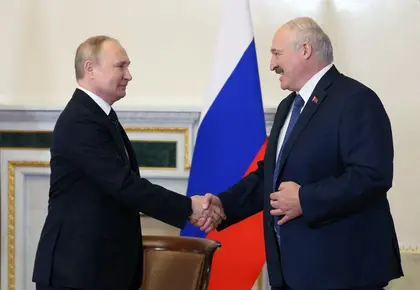
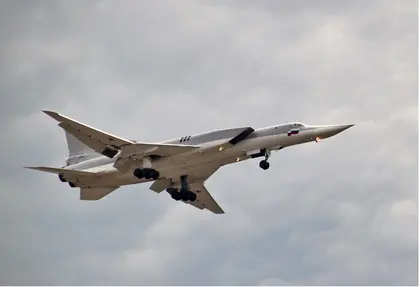
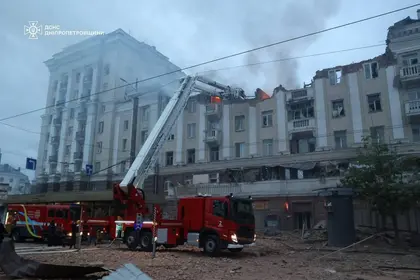
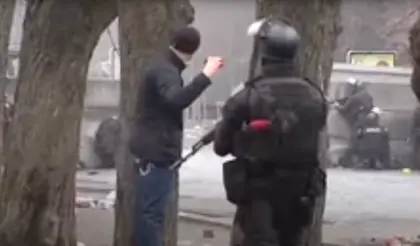
Comments (0)